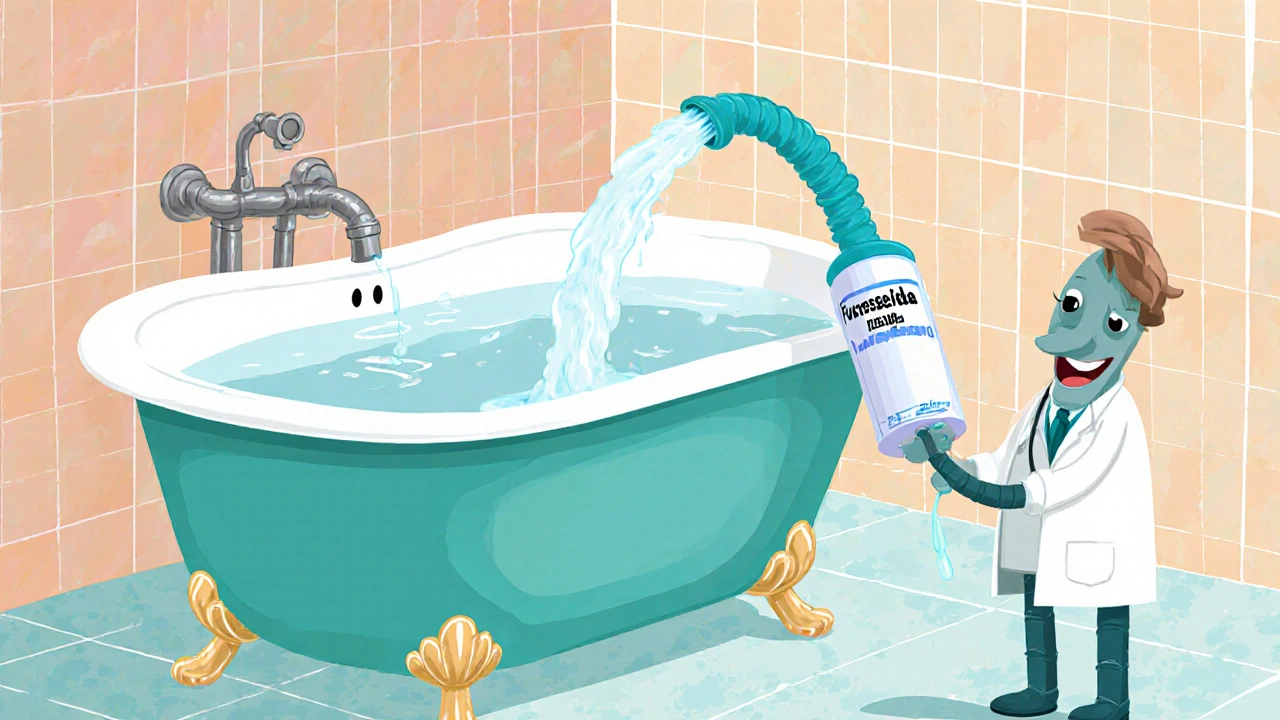Hydrochlorothiazide: What It Is and Why It Matters
When working with hydrochlorothiazide, a thiazide‑type diuretic used to lower blood pressure and reduce fluid buildup. Also known as HCTZ, it helps the kidneys eliminate excess salt and water, easing strain on the heart.
Hydrochlorothiazide belongs to the broader class of diuretics, medications that increase urine output to manage fluid balance. Diuretics are a staple in treating hypertension, heart failure, and edema because they directly affect how the kidneys handle sodium.
One of the main reasons doctors prescribe hydrochlorothiazide is its impact on blood pressure, the force of blood against artery walls. By lowering the volume of fluid in the bloodstream, the drug helps keep pressure in a safer range, reducing the risk of strokes and heart attacks.
Beyond blood pressure, the medication is effective for managing edema, the swelling caused by excess fluid accumulation in tissues. Whether edema stems from chronic heart disease or kidney problems, hydrochlorothiazide’s diuretic action can provide noticeable relief.
Because it works through the kidneys, understanding kidney function, how well the kidneys filter blood and balance electrolytes, is essential when starting therapy. Impaired kidney function may require dose adjustments or alternative treatments to avoid electrolyte imbalances.
How Hydrochlorothiazide Stacks Up Against Other Drugs
Our collection of articles dives deep into drug comparisons, safety profiles, and cost considerations. You’ll find practical guides that put hydrochlorothiazide side‑by‑side with other antihypertensives, such as ACE inhibitors, beta‑blockers, and newer SGLT2 inhibitors. These pieces break down efficacy, side‑effects, and when clinicians might prefer one class over another.
Several posts also explore the role of hydrochlorothiazide in combination therapy. When paired with a potassium‑sparing diuretic or a renin‑angiotensin system blocker, the combo can sharpen blood‑pressure control while mitigating potassium loss. Real‑world dosing tips and monitoring strategies are covered to help patients stay on track.
Safety is another frequent theme. Articles discuss common side‑effects like increased urination, low potassium, and occasional gout flare‑ups. They also address rare but serious concerns such as severe electrolyte disturbances, offering clear signs that warrant a doctor’s call.
For those curious about cost, we compare generic hydrochlorothiazide pricing with brand‑name options and examine insurance coverage nuances. The goal is to give you a realistic picture of what to expect at the pharmacy.
Overall, the posts below provide a well‑rounded look at hydrochlorothiazide—from its basic mechanism to detailed drug‑by‑drug comparisons—so you can make informed decisions about your treatment plan. Dive in to see how this humble diuretic fits into the larger picture of cardiovascular health and fluid management.

Furosemide vs. Alternatives: Pros, Cons, and Best Uses
Haig Sandavol Oct 21 9A comprehensive, human‑written guide that compares Furosemide with its main alternatives, detailing uses, side effects, costs, and when each drug is the best choice.
More Detail